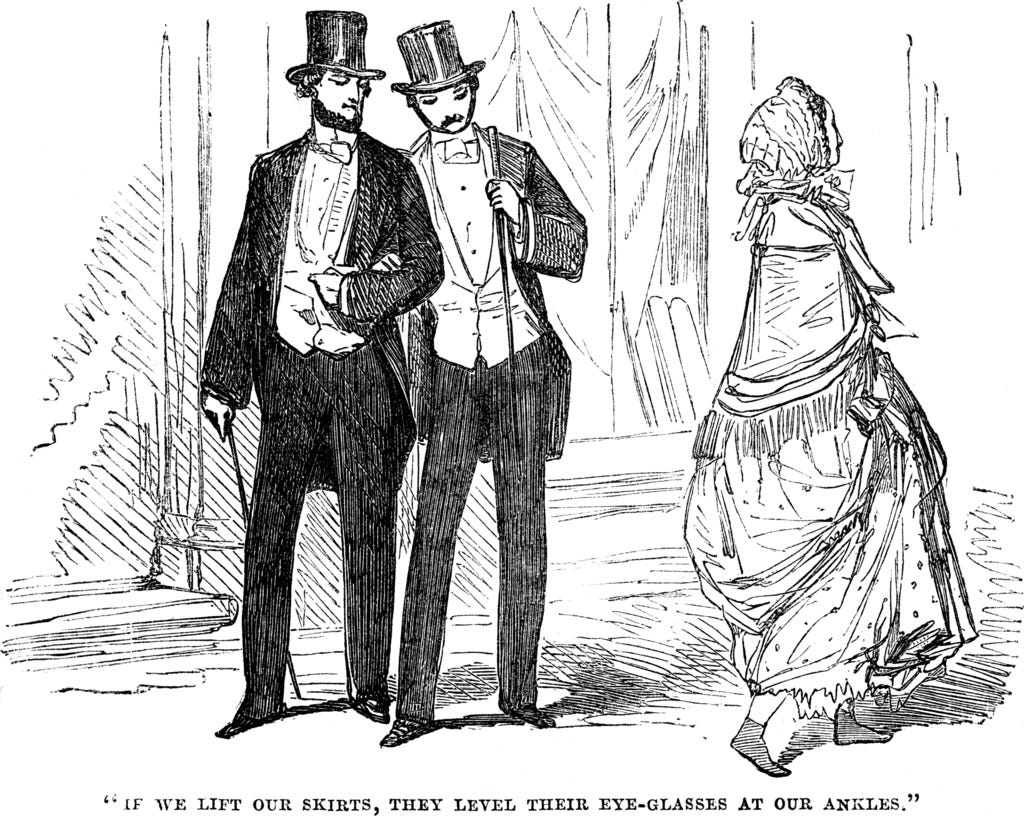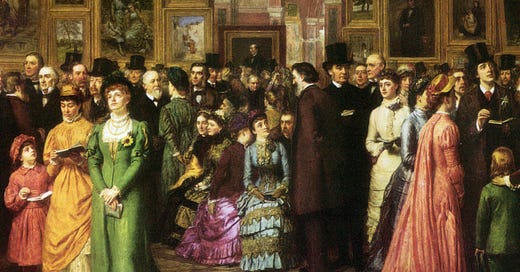my suburban town is in its victorian era.
A state bill that would keep sex workers safe is bringing out the pearl-clutchers.
Queering the Burbs is a distillation of pop culture, politics and queerness published twice weekly by Joe Erbentraut. If you like what you see, please consider subscribing (many posts are free!), liking or sharing this piece, or buying me a coffee. Order Joe’s new zine, Issue #01, here.
I guess I should have seen this one coming.
Earlier this year, a handful of Democratic lawmakers in Illinois proposed a new bill that would decriminalize sex work. If signed into law, the bill would make Illinois the first state in the nation to do so.
The bill would make a number of changes aimed at creating safer conditions for the state’s sex workers. Specifically, the proposal would remove criminal penalties for adults who are engaged in consensual sex work. It would also expunge arrest and conviction records for sex workers in the state and establish a new sex workers’ bill of rights.
The proposal is backed by a growing coalition of organizations including sex worker advocates, LGBTQ advocacy groups, and the ACLU, which has also authored a comprehensive resource on the benefits of decriminalizing sex work. Among these benefits are removing the fear of arrest that can prevent sex workers from seeking justice when they are the victims of violence, deterring violent clients from continuing to take advantage of sex workers, increasing sex workers’ access to healthcare, and increasing their financial independence.
Decriminalizing sex work is also a matter of LGBTQ equality. As the ACLU notes, LGBTQ people make up a large portion of the sex worker population, and trans women of color specifically are the segment of sex workers that are most frequently targeted for profiling, harassment, and violence perpetrated by police officers. Put more plainly, nearly two-thirds of the trans people murdered worldwide are engaged in sex workers, a fact that also highlights the high unemployment rate among the trans community due to factors including discrimination, harassment, and a severe lack of legal protection.
Put more simply, this legislation is working to bring more transparency to the sex work industry, an industry that has existed for a very long time in this state, nation, and world and will continue to do so regardless of any laws that are introduced or shot down. The legislation would dramatically increase safety for an extremely vulnerable and marginalized community, and also make the communities we live in safer. This bill would reduce so much needless suffering and make it easier to root out exploitative, criminal human trafficking operations.

Many residents of my fair town do not seem to see it this way. The administrator of a local politics-oriented Facebook group has obsessively posted about this legislation in recent weeks in an apparent effort to rile up the group’s more conservative and ill-informed members. Like clockwork, the comments have rolled in—how this bill is “evil,” how the proposal would turn Batavia into a miniature Vegas, full of drugs and sex, and how “evil” Chicago Democrats—now including one of the bill’s newest cosponsors, West Chicago-based state Sen. Karina Villa—are responsible for all of this hedonistic immorality.
When I and others questioned this admin’s obsession with the legislation, he claimed that there was little transparency around the bill and its contents, despite the fact that endless news articles about it have been published since its introduction, and that its full contents can quickly be found online (the Illinois Senate’s SB2391 here, the Illinois House’s HB4410 here). Others fed into this lie, describing the introduction of the bill like some kind of left-wing conspiracy theory to bring more sinful rot to precious little towns.
This admin’s latest post on this issue in the Facebook group was deleted once he refused to actually explain his preoccupation with this bill, and this individual proclaimed that he would no longer post about state legislation in the Facebook group. In other words, he didn’t like how the game was shaking out and so he took the ball away and told everyone to go home.

It is situations like these that remind me, despite our community’s undeniable progress in many ways, just how regressive, repressed, and small of a worldview many individuals still hold in towns like mine. It’s clear that when some of my neighbors hear the word “sex work” they picture outdated scenes from Hollywood movies released decades ago playing out in our streets. Maybe that sight we all got of Luigi Mangione’s bare shackled ankles the other week in court has all of us feeling a bit Victorian.
Little do my neighbors know, they probably know at least one person in their lives who engages in some form of consensual sex work. A 2005 study in the National Library of Medicine identified at least 25 types of sex work that sex workers around the world engage in, and the reasons why sex workers engage in this field are many. For some, they consider sex work to be the best option they have to earn a living, while others engage sex work as a means of exploring and expressing their sexuality, as this Open Society Foundations explainer notes.

At the same time these discussions are playing out, we just saw a gorgeous and ambitious film called Anora take home a massively impressive five Oscars including best picture at the Academy Awards this past weekend. The film, directed by Sean Baker and starring Mikey Madison, has faced some backlash from sex workers (though others have praised the work). Still, though it was far from a perfect film, Anora (like Baker’s previous film, Tangerine) shined a light on a segment of our population that remains far too frequently misunderstood and cast aside.
This is a community that deserves so much better, and this Illinois bill is an effort to do just that. I’m grateful to live in a state and community where lawmakers are willing to stick their necks out for a population as cluelessly maligned by the willfully ignorant. I hope that the bill passes and sets an example for other states and communities to follow—it would be a rare bright light in these dark days.
In the meantime, I believe it is on us to call out this type of buffoonery whenever and wherever it rears its head. We are entering a period of unprecedented uncertainty and our economy appears destined for the shitter. It is times like these where we have two choices as human beings. One choice is to look at people who are different from ourselves as a threat, as the “other” we must compete with for increasingly scant resources. Let’s call this the Mad Max option. Spoiler alert: I don’t vibe with this option, and it terrifies me to see the amount of people who currently appear aligned with this individualistic, capitalistic worldview.
The other choice is to look for the good in others, to share resources, and lift up the individuals who are being pushed to the brink, who are being labeled as a problem in need of fixing. We must lock arms with these people, even as they are dragged away by private security at a GOP town hall. We must donate to these people and lift up their perspectives. We must resist the urge to simply worry about ourselves and just hope for the best for everyone else.
In this fight for democracy and humanity, we are very much in this together—and we quite simply won’t win if we’re tearing down those who need us the most.
Unable to swing a subscription right now but still want to support my work? You can tip me a cup of coffee via Ko-fi.com. Your support helps me keep posts like this available free to all readers.
Other ways you can support Queering the Burbs besides subscribing include: Commenting below, sharing this post on social media, forwarding this email to a friend, or buying a zine or merch. Thank you!
SONG OF THE RIGHT-NOW
I’m lucky enough to be attending a Tori Amos book signing in Naperville tomorrow which includes a brief meet-and-greet with mother herself. I’ve been a fan of Tori for over two decades now and always dreamed of what I’d say if I ever got to meet her.
My husband and I narrowly missed a chance to meet her next to her tour bus after a Madison concert years ago because I insisted that we run to grab slices of mac-and-cheese pizza from Ian’s. Minutes later, while we munched on our cheesy carbs back in our hotel room, a friend who’d been waiting next to the bus with us texted over her gorgeous selfie with the queen. Alas. (The pizza was very good, though.)
We get a second chance tomorrow. If there was more time, I’d tell Tori about the meme Instagram account I started for her during the peak pandemic days. Maybe I’d tell her about the first concert my husband and I technically saw together was the time she played Jay Pritzker Pavilion in downtown Chicago—I watched from the lawn inside the park, while Stefin was lying unknowingly on a piece of grass just outside the park. When she played the heart-wrenching “Putting the Damage On,” the song’s crescendo aligned perfectly with the Navy Pier fireworks. I’d tell her how she changed my life. I’ll probably just say “Thank you,” but I’ll report back on what I manage to mutter.
I’m listening to Tori on this rainy day and can’t get the song “Carbon” out of my head. Enjoy this recording of Tori playing the song live on KCRW some years ago.
Just keep your eyes on her
Keep
Don't look away
Keep your eyes on her horizon
P.S. I recently appeared on the podcast-newsletter The Interviewist with Sarah Cottone. I talked about my past experiences interviewing icons like Phaedra Parks, the time I embarrassed myself on a call with Rachael Yamagata, and so much more. Give it a watch/listen/read right here, and be sure to subscribe to The Interviewist for more insights from professional yappers like me.





I truly wonder what people on the internet think when they read about our town through your newsletter. Cracks me up to think about it. Mayberrry is having a hard time admitting that sex work has been present in our community long before this bill and will continue to be after it.